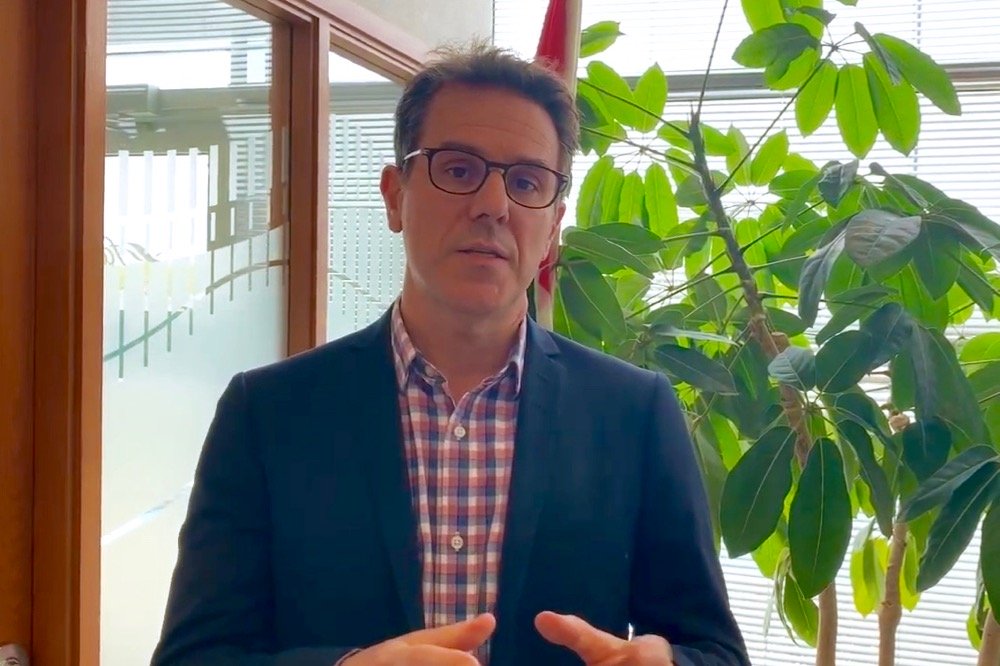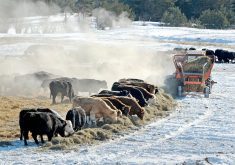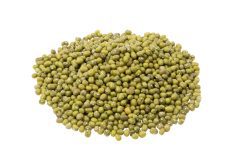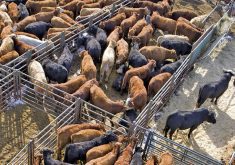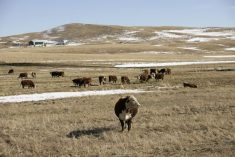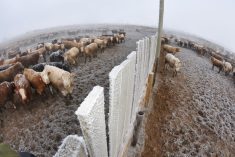Stocks continuing to plunge during the COVID-19 coronavirus pandemic have left agricultural producers in Canada concerned about the potential impact.
Thursday marked the biggest drop in Canadian stocks in 80 years, highlighted by many economists warning the country is on the brink of recession.
Beyond growing fears of COVID-19’s economic impact, oil and gas stocks continue to be rocked by an ongoing feud between Russia and Saudi Arabia over production. U.S. President Donald Trump’s decision to restrict travel from Europe for 30 days in order to restrict the virus’ spread further lowered prices.
Read Also

U.S. livestock: Cattle fall back, hogs continue slide
Chicago cattle futures fell back on Tuesday. Hogs continued to slide. Most-active December live cattle futures closed at 227.775 cents…
Richard Gray, a professor in the College of Agriculture and Bioresources at the University of Saskatchewan, said grains will most obviously be impacted as reduced demand for fuel leads to a reduced demand for biofuels.
“Because the stock market is down, is this the end of ag? People still have to eat. Where the issue is, is contagion in the markets,” he said.
Farm Credit Canada chief agricultural economist J.P. Gervais echoed Gray, adding that oil is an “imperfect barometer” for how other commodities will perform.
“At the world level, oil is really connected to overall global activity,” he said.
Gray cautioned farmers to manage their expenses as there is no certainty as to how long the economic slump will last.
“They won’t be making a lot of discretionary purchases,” he said. “Agriculture will suffer some, but probably not as much. Lower interest rates will help, and let’s hope it’s temporary and short-lived.”
Gervais said he expects agricultural markets to be impacted a little more than what we’ve seen so far if the virus continues to spread.
“We know that supply chains have been affected by the coronavirus, what we don’t know yet is to what extent consumer confidence, for example, is to be impacted in the coming months,” he said, noting many central banks are cutting interest rates and there may be a weaker demand for commodities.
Agriculture Minister Marie-Claude Bibeau said it may be hard to find some supplies in Canada and predicted a possible variation between what is exported and what is found domestically as a result of the pandemic.
“We all have a responsibility as leaders to behave in a way that we here in Canada are working in collaboration with the provinces to face this, as well as have all the resources to face it,” she told a government committee. “We have a good health system and a good economy as well.”
Bibeau added she was confident the situation could be dealt with.
Finance Minister Bill Morneau told reporters he was aware Canadians were feeling anxious about the volatility in the stock market.
“We expect a level of volatility in the stock market right now. We know that with the coronavirus there’s a high level of uncertainty and that’s reflected in markets,” he said. “But I want to tell Canadians what it is we’re working on to make sure that we deal with this uncertainty, to make sure we protect Canadians from a health standpoint and we protect our economy for the long term.”
While there are calls from some politicians and economists to boost Canada’s stimulus spending ahead of the federal budget being released March 30, Morneau maintained he will monitor the situation for now and work with international partners to deal with the growing volatility.
“What we’ve done from a budgetary standpoint is we’ve recognized that our fiscal situation is different. This economic volatility is real. I’ve actually gone ahead and asked the private-sector economists who help us to form the basis of our economic forecasts, come back with a refresh of their expectations,” he said.
“That’s going to help us to make sure we have a good starting point. We’re going to be transparent about that with Canadians. From there what we’re going to do is to use our fiscal strength to make sure our economy stays strong in the face of this uncertainty.”
‘What if?’
Jeff Nielsen, chair of the Grain Growers of Canada (GGC), said it’s important for producers to try and maintain a cash flow and ensure their mental health.
“Farmers have a chance to get away with their family and take a break, but now possibly can’t due to the fact that we’re being told maybe we shouldn’t travel outside of the country,” he said, noting farming can be very isolating.
Beyond that, he’s left with a head full of “what ifs” like everyone else. “What if there are more issues getting our grain to ports?” he said.
Canadian Horticultural Council president Brian Gilroy raised concerns over labour as spring approaches.
“This is the time when a lot of workers are going to be travelling to Canada to help with the growing of fruits and vegetables,” he said, adding there are already discussions about moving travel dates up so that if the pandemic does get worse there will still be workers here. “There’s a fairly high level of anxiety about that,” he said.
“We don’t have enough Canadians to do the work, so that’s why we rely on seasonal agricultural workers and temporary foreign workers.”
Labour was already a challenge for the agriculture industry and there are growing concerns over the ability of processors and producers to remain open as more people are being urged or asked to self-quarantine.
Given the significant human resources needed to move food through the supply chain, this could become a major concern in the coming weeks.
— D.C. Fraser reports for Glacier FarmMedia from Ottawa. Includes files from Gord Gilmour.

